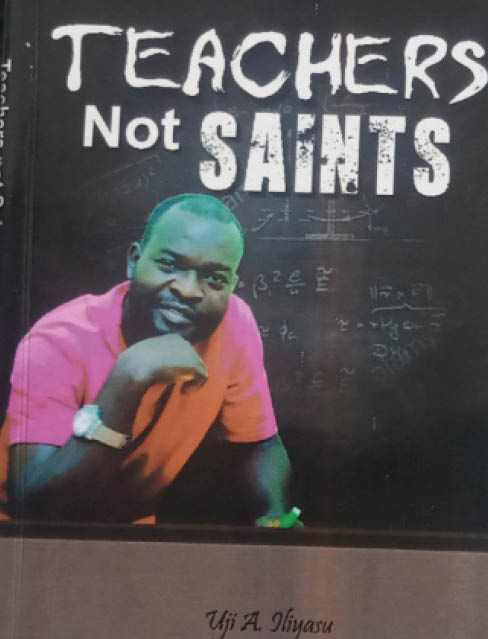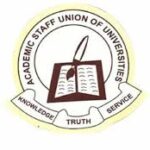Uji A. Iliyasu is a teacher-turned-journalist. He is currently a senior correspondent with the Blueprint Newspaper. Apart from being a journalist, he is also a writer. He authored the book titled ‘Teachers not Saints,’ a story of a society that neglects its teachers but emphasizes certificates. It is a fiction that exposes corruption in the education system, and the author in this interview tells why he chose to write about teachers.
What is the book ‘Teachers not Saints’ about?
‘Teachers not Saints’ is the story of a society that neglects its teachers but depend on the certificates they produce. It weaves around two Senior School Certificate Examination (SSCE) supervisors, Mr Hubi and Mr Hadi. Being aware of corruption in the system, the hopelessness and frustration of Nigerian teachers; Hubi goes out to reap his reward while alive. He does not believe in waiting to receive his in heaven, as such, he engages in exam malpractice for rewards from principals of exam centres.
- CBN jacks healthcare interventions to N200bn, to launch e-naira Monday
- How age cheats, accommodation crisis almost marred National Youth Games
Mr Hadi on the other hand believes that receiving his reward in heaven is better, thus goes out to examination supervision, following professional ethics but when he returns from an assignment and met his younger brother waiting for him in his one-room rented apartment, with the message that their mother is dying in a hospital for want of N50,000, he shuns professional ethics and goes into exam malpractice to source money for his mother’s operation. He becomes corrupt, even more dangerous than his colleague, Mr Hubi.
How many books have you written so far and how are they faring in the market?
So far, I have written three books: ‘The Victorious Gamblers’, ‘Teachers not Saints’ and ‘Phone Call from Cemetery’, a manuscript I am yet to complete. ‘Teachers not Saints’ is more successful than the first book because readers are asking for it just for seeing the synopsis on the back cover as posted on social media platforms. But like children, the author loves all his books.
How did your journey into book writing begin and what has been your driving force?
My first book, ‘The Victorious Gamblers,’ is a thriller, entertaining my readers, mostly higher school students, because it tells the story of student union elections in a teacher training college. I was inspired to write ‘Teachers not Saints’ to show the world the plight of teachers in Nigeria. It is a one-man protest over the deplorable conditions of service of teachers. I am protesting an educational policy that depends heavily on certificate qualification at the expense of practical ability; I am protesting job vacancies that request first-class and second-class degrees, without minding how the results are gotten. I am protesting making Mathematics and English Language compulsory for students as prerequisites for further education and job placement. I think the best way I can protest is not to carry placards but to write to policymakers, parents, students, schools and exam bodies including WAEC, NECO, JAMB, and the likes.
I was a teacher before I became a journalist. So ‘Teachers not Saints’, though fiction, is an insider story of exam malpractices in Nigerian schools, with acquiescent roles of exam bodies, school heads and parents.
I started writing ‘Teachers not Saints’ in 2006 and completed it in 2016. I abandoned it before, but later I thought I was failing in my civic responsibility, so I dusted it and completed it.
What informed your choice of title and what lessons do you want readers to learn from the book?
I want to tell Nigerians that teachers’ reward is in heaven, but it must start from the earth. This is because nobody can pay for a teachers’ service and by the way, will all teachers go to heaven? Those who may not make heaven, how can they receive the reward? Are all teachers’ saints? The saying that a teacher’s reward is in heaven is designed to cheat moulders of society. If God will reward teachers in heaven, the government and other stakeholders should reward them on earth.
When did you launch the book and since the launch, how many copies have you sold?
The book was launched immediately after it came out of the press. My intention is not to make millions out of it, but I want the first edition to get to 50 million Nigerian households. I want every policymaker in Nigeria’s education sector to have it; I also want exam bodies, head of schools as well as the National Assembly to have it. I want well-meaning, patriotic Nigerians to take up the challenge and help mass-produce this book because the cost of publishing is choking.
Since the book came out of the press in July, I have distributed close to 541 copies free. I want a situation where I can distribute the copies at the Federal Secretariat area in Abuja free of charge.
What are the challenges associated with book writing and how do think they can be surmounted?
Book writing comes with a lot of challenges in Nigeria. Nigeria is a society that does not read books for pleasure. Nigerians read books only to pass exams. They instead use their time to search for food and money. Nigerians are always in a hurry, so they have no time for books. The rich, irrespective of their sources of wealth, are better regarded in our society than intellectuals. Also, publishers are not ready to publish new authors. If ‘Teachers not Saints’ were written by Wole Soyinka, publishers would be falling over themselves to have the copyrights. New talents must be discovered. Wole Soyinka was not discovered in heaven. Publishers should accept works from budding writers who will take over from the Soyinkas and Achebes.

 Join Daily Trust WhatsApp Community For Quick Access To News and Happenings Around You.
Join Daily Trust WhatsApp Community For Quick Access To News and Happenings Around You.


